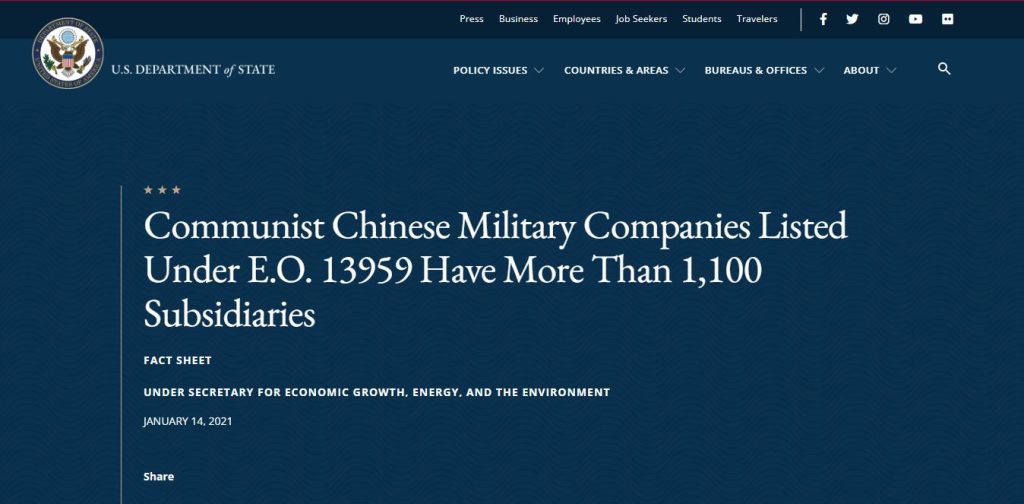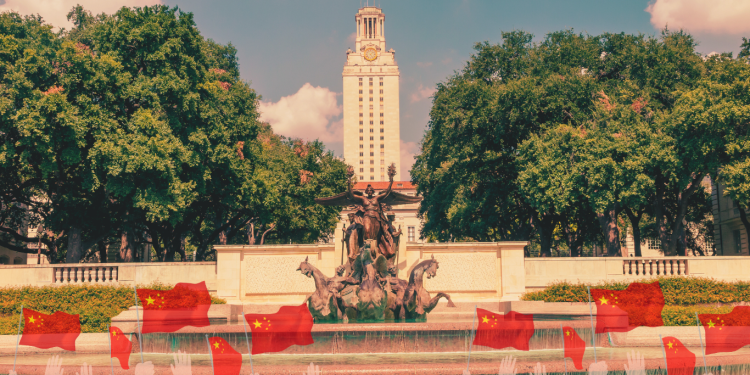In recent developments, it was revealed that the investment arms of the University of Texas and Texas A&M have stakes in numerous Chinese companies, despite the U.S. Director of National Intelligence identifying China as a national security threat.
Records indicate that the University of Texas/Texas A&M Investment Management Company (UTIMCO) holds investments in over 50 China-based companies, raising questions about these public universities’ overseas financial interests.
The American Accountability Foundation (AAF) first highlighted this issue on September 23, revealing that UTIMCO’s asset managers had advanced certain ideological stances through shareholder resolutions. UTIMCO’s President and CEO Richard Hall acknowledged these concerns, admitting in an October 17 hearing with state senators that he was “not happy with those votes” and pledged to improve the firm’s practices.
A further examination of UTIMCO’s investments uncovered direct ties to Chinese firms.
Among the asset managers involved were Connor, Clark & Lunn Investment Management, JP Morgan Asset Management, and Acadian Asset Management, all of which participated in shareholder votes in China-based companies, signaling UTIMCO’s financial entanglement with businesses in China.
For example, Connor, Clark & Lunn was involved in an October 2023 shareholder vote for Topsec Technologies Group, a cybersecurity company providing services in government, finance, and energy, among other industries. Similarly, Huaneng Power International, one of China’s largest state-owned power companies, was another entity in which UTIMCO fund managers participated in shareholder votes.
This association is particularly sensitive because of China’s tight government oversight, which effectively binds companies to the Chinese Communist Party (CCP).
In November 2020, the Trump administration issued a fact sheet cautioning American academic institutions about investments in China, citing potential funding of military-affiliated companies through endowments. An executive order issued during the Trump administration, later expanded by the Biden administration, sought to limit U.S. investments in Chinese companies linked to defense and surveillance. While UTIMCO’s portfolio companies are not currently on the Department of Defense’s list of CCP-affiliated businesses, the presence of Chinese investments has prompted increased scrutiny.

See Summary of Report Findings: https://2017-2021.state.gov/communist-chinese-military-companies-listed-under-e-o-13959-have-more-than-1100-subsidiaries/
The Executive Order prohibits Exchange Traded Funds, mutual funds, and index funds like those managed by BlackRock, Vanguard, and others from investing in CCMCs.
This State Department Fact Sheet shows hundreds of CCMC and subsidiary stocks, which may be eligible for listing under E.O. 13959 and that continue to be listed on some major index funds. More detailed information is available in the accompanying attachment.
MSCI China A Index MSCI EM Index MSCI ACWI Index FTSE Emerging Index FTSE All World Index CCMCs and Affiliates Identified 36 59 61 74 76 Deletions Announced to Date 6 10 10 10 10 Percentage Announced to Date 17% 17% 16% 14% 13% Additional Information
PRC stocks directly affect the pension assets of American workers and retirees.
- There are more than 5,000 public pension systems in the United States, according to the United States Census Bureau.
- $10.7 trillion invested in the private pension plans is covered by the Employee Retirement Income Security Act (ERISA).
The Thrift Savings Plan’s governing board study revealed that a majority of pension funds use the MSCI emerging market index as their investment guide, including:
- The 401k’s of all 10 largest publicly traded U.S. companies;
- All 10 of the top federal contractors;
- All 20 of the largest state pension plans;
- All six of the largest target-date mutual-fund providers with holdings of $1.9 trillion as of June 2019;
- The Pension Benefit Guaranty Corporation (PBGC), with $131 billion in pension insurance reserves;
- Numerous Insurance Funds;
- Numerous University and College Endowment Funds.
Institutional investors and endowment managers can and should pay attention to these risks:
“Under Secretary Krach sent a letter to the governing boards of American universities, alerting them to the threats the Chinese Communist Party poses to academic freedom, to human rights, and to university endowments. These threats can come in the form of illicit funding for research, intellectual property theft, intimidation of foreign students, and opaque talent recruitment efforts. University governing boards can help ensure their institutions have clean investments and clean endowment funds by taking a few key steps:
-
Disclose all PRC companies invested in endowment funds, especially those in emerging-market index funds.
-
Divest from Chinese companies on the Commerce Department Entity List that are contributing to human rights violations, military coercion, and other abuses.
-
And simply understand the recommendations issued by the President’s Working Group on Financial Markets, which examined the risk to investors of Chinese companies that are listed on U.S. stock exchanges.”
UTIMCO’s board of directors includes appointees from both the University of Texas System and Texas A&M University System (TAMUS). The nine-member board consists of representatives like Jodie Jiles, James Weaver, and Janiece Longoria from the University of Texas, and Jay Graham and David Baggett from TAMUS. Despite the board’s oversight, these investments have sparked concern given that both university systems receive taxpayer funding and hold federal defense contracts, raising potential ethical and strategic conflicts.
See Consolidated Proxy Votes_4_4_2024
In response to the Texas Scorecard’s inquiries, UTIMCO directed further questions to the UT System. Paul Corliss, Associate Vice Chancellor for External Relations & Communications at the UT System, stated, “UTIMCO has not invested with any companies on sanctioned or restricted lists and is in compliance with all U.S. laws and regulations.” TAMUS did not respond before the article’s publication.
The debate over UTIMCO’s investments continues as stakeholders assess the implications of such global financial ties for state-funded educational institutions. For those interested, the complete list of proxy votes, including those involving Chinese companies, is publicly accessible for review.






